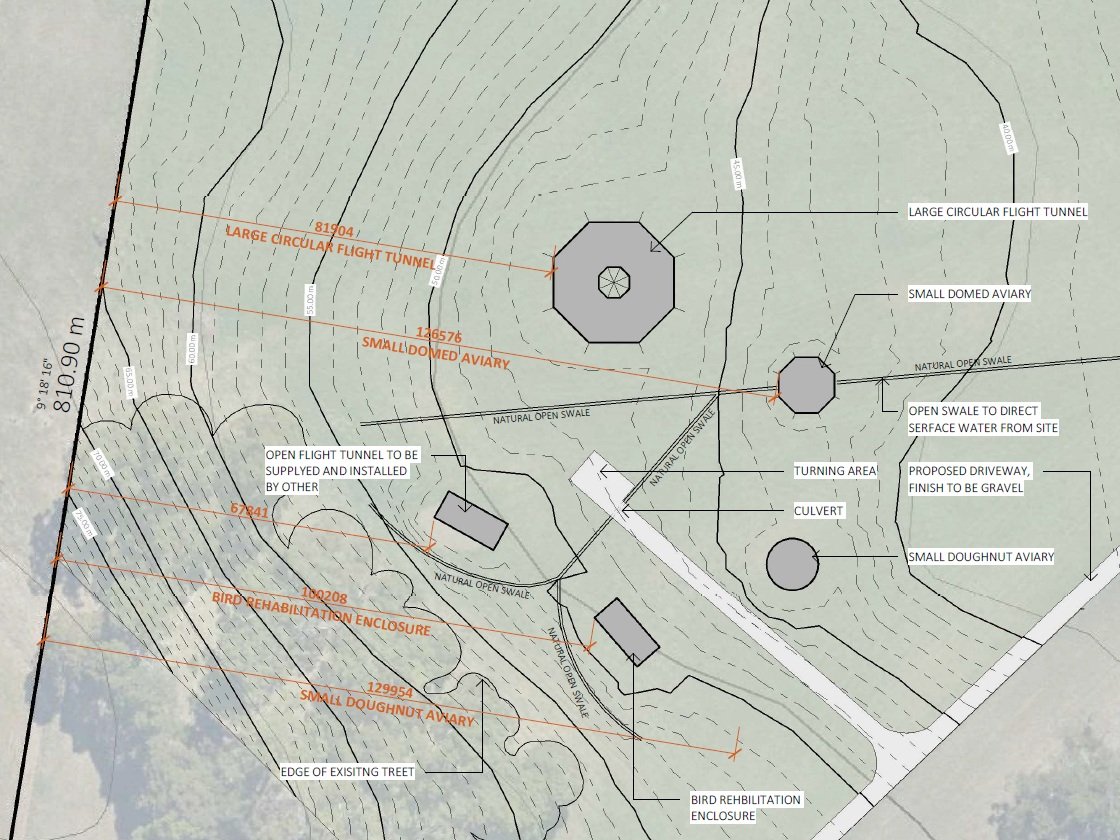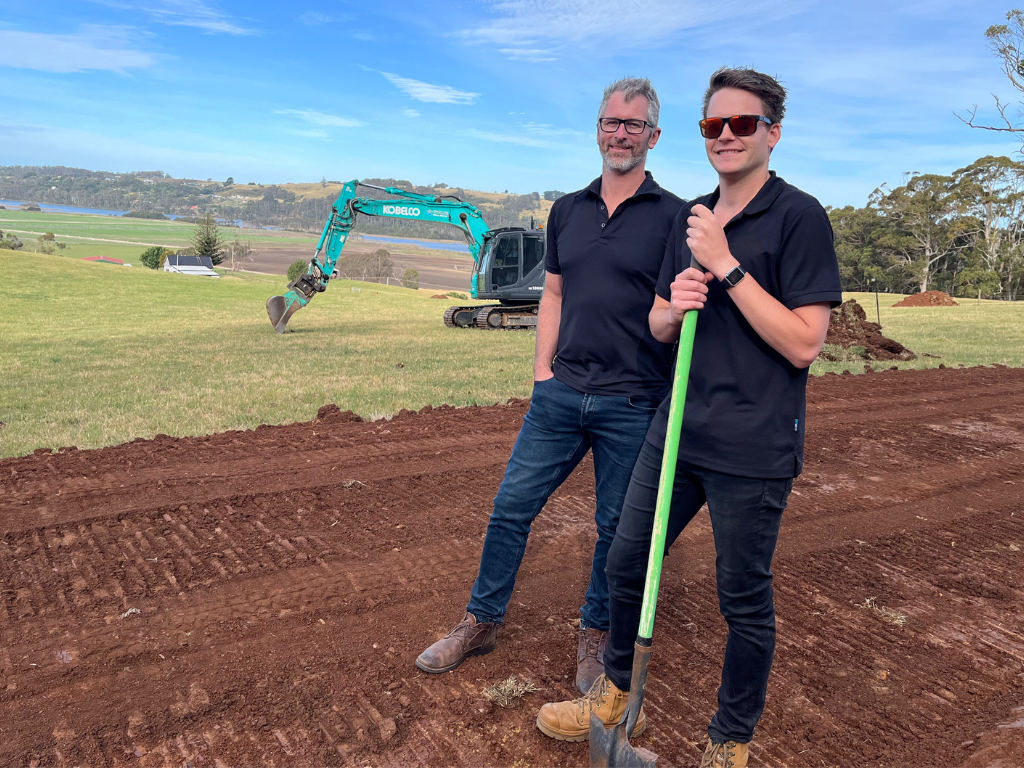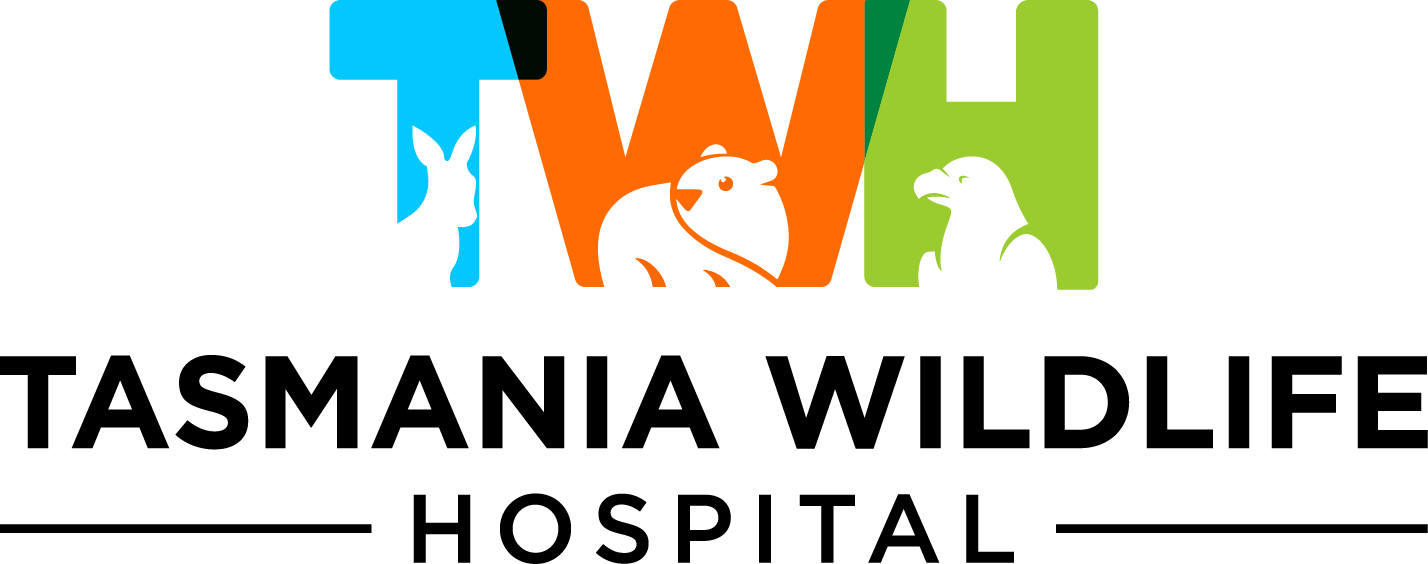
Our Raptor Recovery Program
Our Raptor Recovery Program is a founding initiative of the Tasmania Wildlife Hospital providing support for injured, sick, and vulnerable raptor species across the north regions of Tasmania.
The program will provide a best practice, unified approach for the treatment and on-going support of sick or injured raptor species in our care. This involves:
Developing and building sustainable resources, treatment capacity, equipment and infrastructure.
Establishing one centralised facility committed to providing veterinary hospital treatment, critical care, on-going rehabilitation, and supporting threatened raptor species research.
Collaboration with existing rehabilitation stakeholders, as well as fostering volunteer support and community engagement.
What’s involved
-

Veterinary Treatment and Critical Care
Our wildlife hospital is focused on delivering best-practice veterinary care for sick and injured raptors, alongside other native wildlife species. Helping ensure that every animal receives the highest standard of veterinary support.
Our team uphold the five freedoms of animal welfare, guiding our approach to each animal's well-being. These principles shape our procedures and protocols, ensuring we meet and exceed expected standards in wildlife treatment and care.
-

Rehabilitation Facilities and Support
Supporting vulnerable raptor species is a shared responsibility and our program is grounded in collaboration and support of key stakeholders across Tasmania.
At the heart of our program are the new aviary facilities, designed to enhance and support the region's raptor rehabilitation capacity. These facilities, managed by Josh Gordon, reflect our on-going dedication to raptor care. Josh brings to the program many years of experience in wildlife rehabilitation and captive animal management
-

Community Engagement
Real change begins with deeper community awareness and understanding. So we are dedicated to contributing to community engagement efforts, alongside other Tasmanian organisations that are already making strides in this area.
Together, by strengthening the community's connection with these vital species, we aim to support a safer future for all Tasmania's raptors, contributing to their sustained survival and well-being for future generations.
-

Broadening our Volunteering Program
Expanding our volunteer team is crucial to the daily operations of our raptor program, which includes tasks such as monitoring and feeding the birds in our care, as well as cleaning and maintaining our facilities. We are keen to welcome community members who share our passion for the care and conservation of Tasmania's raptor species.
Volunteers will also be instrumental helping with content creation and participating in local community events to support our engagement efforts.
New Hospital & Aviary Facilities
In 2025, the Tasmania Wildlife Hospital along side our founding partner Forth Valley Vet Clinic will move into a new purpose-built hospital. This shared, state of the art facility includes a designated 63 acres for wildlife treatment, rehabilitation, research and conservation efforts.
Construction of our new raptor rehabilitation facilities on this site begin in early 2024 and is nearing completion. This will be a purpose built, exclusive zone focused on the treatment and rehabilitation of raptors, prioritising Tasmanian threatened species.
Construction will include:
A open flight tunnel aviary for large species.
A circular flight tunnel aviary for small species.
A large circular flight tunnel aviary for large species
A smaller dome aviary with a water source prior
A bank of slatted holding aviaries to house species requiring monitoring and treatment prior to flight time.










The program is supported by founding partners, Forth Valley Vets and TasNetworks, and would not be possible without their commitment and trust.
We are grateful for generous grant funding from Wildcare Tasmania to support the build of these raptor aviary structures.
We are also grateful to PAGE HIRE for their sizeable in-kind support with equipment hire to help build our netted aviary structures
“We extend our heartfelt gratitude to our partners and community for their invaluable contribution to help turn our vision into reality. This support plays a crucial role in the preservation and care of threatened and endangered raptor species for our region”


